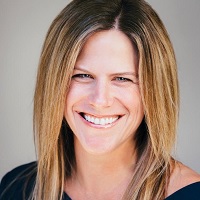By most measures, I’m a smart doctor.
I graduated first in my medical school class, was chief resident in my anesthesia training program, did my pain fellowship at one of the most prestigious institutions in the world, and now am on faculty at an equally well-reputed academic medical center. I’ve been published in medical journals, have created and directed a pain training program, and been invited as an expert to serve on state and national committees and speak at pain conferences both here and abroad.
But despite using every bit of knowledge I’d gleaned from the best medical training in the country, my patients didn’t seem to get better. In fact, most of my patients still seemed to be suffering over time, increasingly depressed and anxious, disabled and desperate. And who wouldn’t be, if unrelenting pain was a reality of daily life?
And the vast majority of the patients I saw had turned to pain pills—opioids, like oxycodone or hydrocodone. And who wouldn’t, if unrelenting pain was a reality of daily life and this is what had been offered as help?
Before I did my pain specialty training, I had never recommended (or personally tried) “alternative” therapies, because that’s not what I was taught in medical school…or how I was raised in the small town South. Some patients asked me about these things through the years, but most patients were as dismissive of these modalities as me. Prescribing pills and performing procedures—doing things to patients—was much more commonly accepted and covered by insurance. So that’s what was done.
And then people started dying of opioid overdose. Throughout my state, throughout our country. And yet no “stronger” or “better” alternatives seemed to be available for those with the most severe, disabling pain in our health care system.
Not acceptable.
So I decided to look into these “alternative” strategies. I became certified in medical acupuncture, enrolled in yoga teacher training, and began to work closely with a center for integrative medicine and the psychologists on staff there.
And learned a whole lot.
What I found may surprise you, but I hope it inflames you. It may anger you, it may sadden you, it may inspire you. But more than anything, I hope it empowers each of you to lend your voice to the conversation. We need a revolution to ensure safe, holistic and effective pain management options for all of us.
If nothing else, I’m a smart enough doctor to ask for help. So I did this TEDx talk. If you know or love someone with chronic pain, or who has been affected by the opioid epidemic, please watch and share.
~
Author: Dr. Tracy Jackson
Photo: Flickr/frankleleon
Editor: Travis May


 Share on bsky
Share on bsky





Read 1 comment and reply